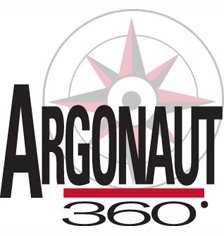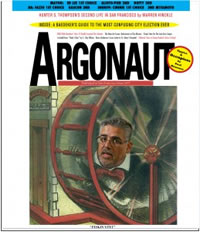(This is an extended version of an article that appeared on the Op-Ed Page of the San Francisco Chronicle about the Transbay Authority’s callous attitude toward small businesses in its path. Attorney Gonzalez, the past president of the San Francisco Board of Supervisors, analyzes the history and inequities of the eminent domain process in the accompany commentary written for argonaut360.com)
By Jello Biafra, Matt Gonzalez and Warren Hinckle.
If we can learn from our ancestors, attention should be paid to Black Bart. The legendary gentleman stage coach bandit robbed only the strong boxes, not the passengers. He was always polite, apologized for any inconvenience, and even left a poem on his departure.
Some people, especially those whose property is being taken, see the eminent domain process as robbery. That is an arguable proposition, and it is not our purpose to argue it here: but what is inarguable is that the in process of taking private property using governmental authority and taxpayers funds the procedures should be polite and above all financially fair to the victims of progress. This regrettably has not been the case in the actions of the Transbay Joint Powers Authority (TJPA), whose communication with the owners whose property is taking has not been poetry but more the bureaucratic equivalent of rude subway graffiti.
On June 21, 2005, the San Francisco Board of Supervisors approved the Transbay Redevelopment Plan which called for the development of “the Grand Central Station of the Westâ€. While the ultimate goal of the plan is laudatory, providing a central terminal for Bay Area trains and buses (with ability to connect to Los Angeles via high speed rail in the future), there is an unfortunate underside of this project.
Many small business owners in the area, who have struggled to carve out a living South of Market, are now being told they have to leave. In fact, they don’t have any choice in the matter as their property has been condemned and any leases terminated by law.
Since 2005, when the U.S. Supreme Court decided Kelo v. City of New London, there’s been a lot of talk about the abuses of eminent domain. While, at first glance, this project differs from the shopping mall projects that eminent domain adversaries tend to criticize — since it will be a major public transportation hub – the current proposal does contemplate commercial uses, including likely shopping areas.
Eminent domain means government taking which must be accompanied by just compensation. For these businesses, this was at least some consolation, once their hopes of saving their businesses were defeated by this massive governmental project which is estimated to cost over 4 billion dollars.
The Transbay Authority promised just compensation when asking the Board of Supervisors to approve their plans. But they have now adopted what can only be equitably described a “stingy†attitude in assessing values. Small business owners in the Natoma row, which will be the center of the new Transit Center Building, complain that the project refuses to reasonably consider their business losses resulting from this project.
The fact is that the Authority appears to be more interested in keeping their pay outs low enough to track the projections they budgeted for, rather than basing them on evidence that objective appraisers have compiled.
Twelve businesses in the area are scheduled to be extinguished this year and another 21, including the oldest photography business in the city, are on line to be condemned next year.
The authority has unlimited powers and the fine print of its plans is confusing to many small business in the area – who if they are not wiped out by being added to the doom list of those to be torn down, could lose their businesses in the dust and delay of the construction process and have reasonable cause for anxiety, considering the Big Brother attitude of the Authority displayed thus far.
An egregious example of those immediately threatened is Varnish Fine Art which is a 7-year art gallery located on Natoma between 1st & 2nd Street, which has struggled to get get the Authority to acknowledge their real business losses.
Varnish co-owners Jen Rogers and Kerri Stephens invested in making it into a spectacular public space and one of the city’s most inventive art galleries. It has become a destintation location in the South of Market area for those looking for post-work and evening activity. Varnish has hosted hundreds of art openings and book parties and even weddings and has carved out a niche in the “events” market.
The Varnish owners went to great cost to seismically retrofit and refurbish their two story building — only to find out abruptly that the Authority had taken over their lease and their future was doomed. They are being told to take a hike and that the expense and effort they but into this success is worth nothing, case closed.
A bay area firm which specializes in appraisals calculated loss of business “good will†at $470,000, including cash invested and the tremendous sweat equity the owners of Varnish invested in making it successful. By contrast the TJPA hired a Los Angeles appraiser — who never made a site visit — and ran off on his calculator that the loss was under $70,000. Obviously some figure between the two is probably fair, but the Authority refuses to budge off its number and has been uncommunicative and arbitrary. It have shown none of the class of Black Bart, who also did taking.
All told, the monetary difference (between what all of the business owners are asking for and what the TJPA is willing to pay) doesn’t even amount to 1/10 of 1% of the project cost. For these business owners it could be the difference in enabling them to survive in this difficult economy.
If government takes private property and disrupts leases then it must compensate fairly. The impulse to protect public money is commendable, but our officials cannot lose sight of the forest for the trees. Lets take care of these property owners who are making a sacrifice on our behalf. Lets not be like the congressmen who are fast to send troops to war but slow to dole out veterans benefits when they come home.
As the law currently stands, business owners are entitled to a jury trial to settle disputes over what their property is worth. Unfortunately for most of the affected businesses, this is an illusory option. The additional costs to retain trial attorneys and the time they would have to wait to have their matters proceed to trial isn’t a realistic option when they concurrently face relocation costs and assorted complications of securing new locations.
The word “Redevelopment” in the enabling act of the Authority that the Board of Supervisors approved gives pause to many San Franciscans who remember the horrors of the redevelopment process in the Fillmore decades ago when the property of the city’s black population was grabbed for farthings and they were left only with broken promises of relocation.
The scars of the tragically mishandled Fillmore redevelopment remain both on the physical landscape and psyhic history of the city. The fact that the San Francisco Board of Supervisors as part of their expanding powers has a major voice in the TJPA should be a matter for hope for equitable treatment for the small businesses effected, and we trust the Supervisors will command the attention of the bureaucrats running that huge Authority and teach them some manners.
The Transbay Terminal Project must not become the Three Gorges Dam of San Francisco, where the villages were drowned so they could have water.



















1 response so far ↓
1 Gayle Alexander(Melbe Alexander daughter) // Oct 8, 2009 at 4:54 pm
Hi Warren,
My mom, Melbe Alexander, would like to say hi and wonders how Bob and Marianne are doing.
Sincerely,
Gayle Alexander
You must log in to post a comment.